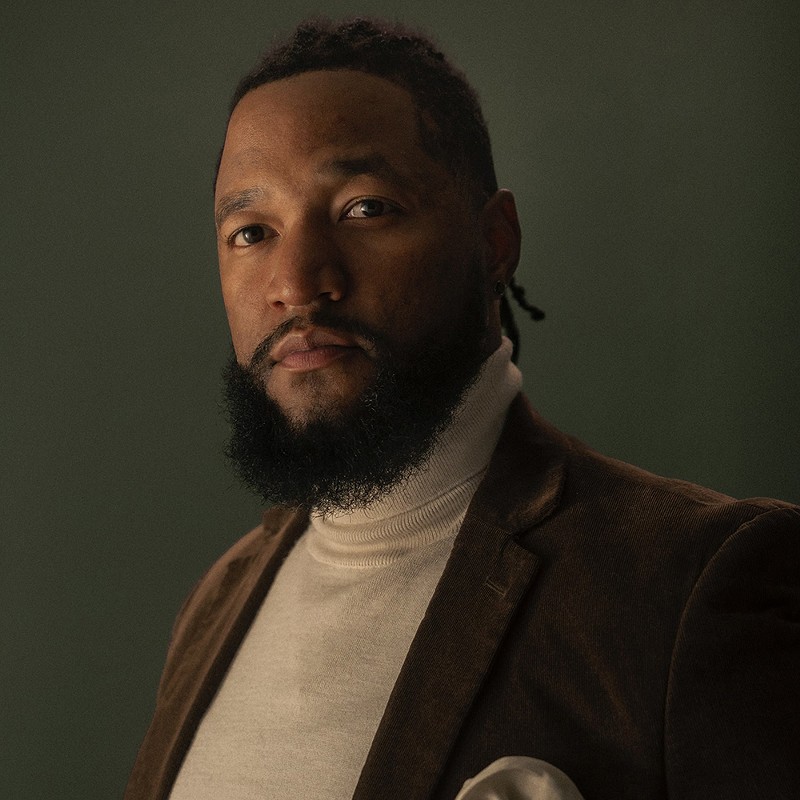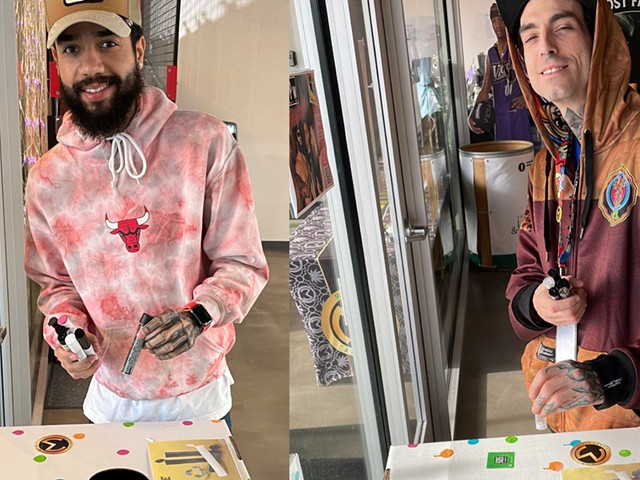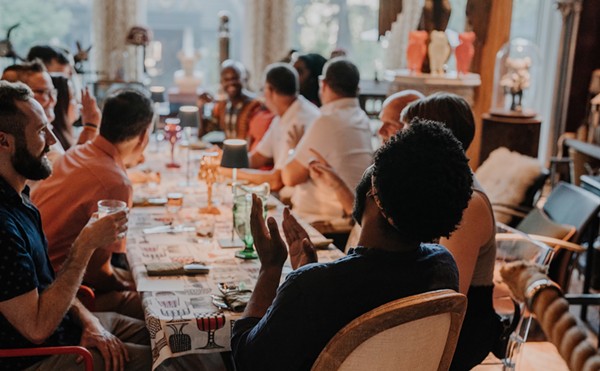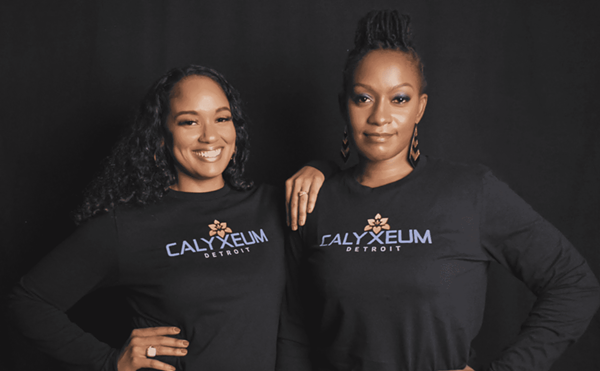Jerome Crawford is a man who wears many hats.
There are times you can catch him on stage doing improv and stand-up comedy and others where you can find him in front of a classroom teaching law at Wayne State University. If those two vocations aren’t different enough, Crawford also works as the chief legal officer at Pleasantrees, a growing Michigan-based cannabis company.
Growing up on Detroit’s westside, Crawford first got interested in entertainment through his middle school drama club and later became involved with improv at Renaissance High School. He always had an affinity with law, largely due to his father’s work in the military and as a private investigator, but didn’t understand the full scope of careers in the field until a classmate’s birthday.
“One of my classmates came to school, and for her 16th birthday, she pulled up in a two-seater Benz. I remember joking with her, like, ‘What does your dad do for a living?’ and she said he was an entertainment lawyer. I didn’t know that was such a thing, but it was a blend of my worlds,” Crawford says.
After high school, Crawford attended Michigan State University for both his undergraduate and law degree. Although his background in improv and standup comedy may seem unrelated to his occupation, he feels it gave him skills that he uses in the boardroom and allows him to teach other litigators how to deploy them in the courtroom as well.
“Before the Young Lawyers Summit, I would teach the Improv for Lawyers class; it was about speaking on the fly and reading and reacting to people. Emotion, I found, is such an essential skill,” Crawford says.
So how does someone go from comedy and practicing corporate law to working at a budding — all puns intended — cannabis company?
For Crawford, it was because of his friendship with Benjamin Sobczak. The two met in 2010, when Sobczak was Crawford’s point of contact for an interview at a local law firm. From there, they formed a good friendship, and when Sobczak left the firm to join Pleasantrees, he encouraged Crawford to consider working in the cannabis industry.
“We go back almost 13 years, and ironically, he’s a rapper. You have this white rapper from Waterford, and I’m a Black standup comedian — we’re both like super black sheep,” Crawford says. “Coming into Pleasantrees, it wasn’t because of an affinity toward cannabis. It was a burgeoning industry, and it was a chance to work alongside somebody who I loved and respected — a real brother to me. What locked me in was the social equity side of what I do.”
When Crawford joined Pleasantrees in November 2020, it was as the director of legal operations and social equity. However, at the time, Crawford says he didn’t quite understand what social equity meant or what it would shape up to be. He was new to the industry, the industry was still new to Michigan, and the COVID-19 pandemic was in full swing.
“I didn’t even really understand the concept of social equity. I knew the war on drugs wasn’t a real thing, that [it] was more of a war on people and poverty,” Crawford says. “There was actually a perversion around social equity, where people were saying it’s not real or that it was lip service, and you know what I wasn’t doing? Playing. I told my company, ‘With all due respect, I’m not your token Black guy.”
He quotes a prominent former TV journalist based in Detroit and Michigan Cannabis Industry Association board member: “Anqunette Sarfoh described social equity in the most eloquent and simple way. She said social equity is giving the people a cut. We all acknowledge that the war on drugs was a tool of oppression. How do we give people the necessary cut? The people with disproportionately impacted backgrounds or communities, how do we give them the equity?”
The legal cannabis industry is a predominately white industry, although historically many of those who were most affected by the war on drugs were people of color — specifically Black and Hispanic communities. It’s a fact that can’t be ignored, and when asked how it feels to be Black and navigating this space, Crawford says life prepared him for it.
“I went to Michigan State,” he says. “I’m not unaware of what it feels like to be the only Black speck in a room. Even though I grew up in Detroit on the westside, and went to predominantly Black schools up until college, my parents put me in activities where I was around more diverse backgrounds, and that sometimes meant being the only one.
“To walk in these rooms, they didn’t give me a lot of qualms, because how is it any different than what I have to do every day?” Crawford continues. “I’m at a point where I want to live as authentically as I can. My colleagues call me ‘Rome’ in emails, that’s never happened. Some of that, I have to give Ben credit for, because he created a license for authenticity, and I think you need that from your allies, your champions, and those who don’t look like us.”
When it comes to making the cannabis industry more inclusive and progressive in social equity, Crawford says that change has to be woven into a company’s overall foundation, including hiring practices, organizational partnerships, and community development.
“To me, the way you make some change in social equity is to really think about all [the] areas where you can make an impact instead of griping about the things you cannot do. I really believe in showing grace and giving people opportunities, and being intentional,” Crawford says. “I have a team that doesn’t really look like me, but they know my intention. They know what I’m about and that I want us, as a company, to do our best and beat those statistics.”
Coming soon: Metro Times Daily newsletter. We’ll send you a handful of interesting Detroit stories every morning. Subscribe now to not miss a thing.
Follow us: Google News | NewsBreak | Reddit | Instagram | Facebook | Twitter







